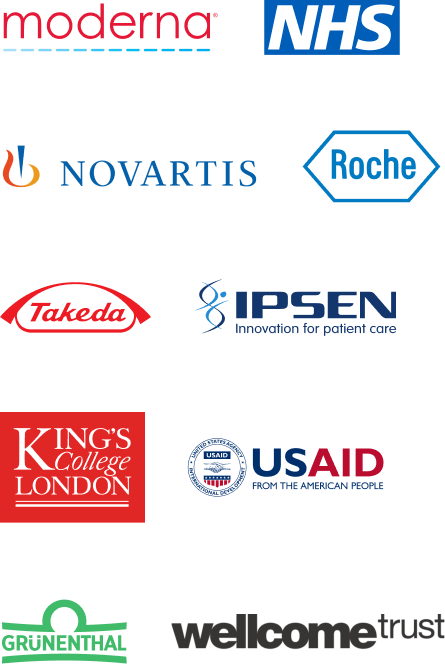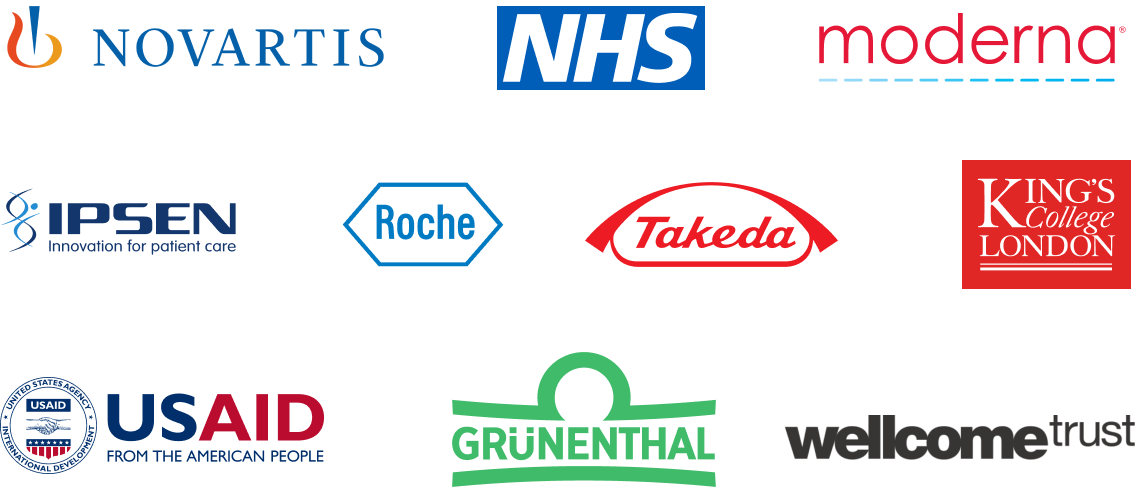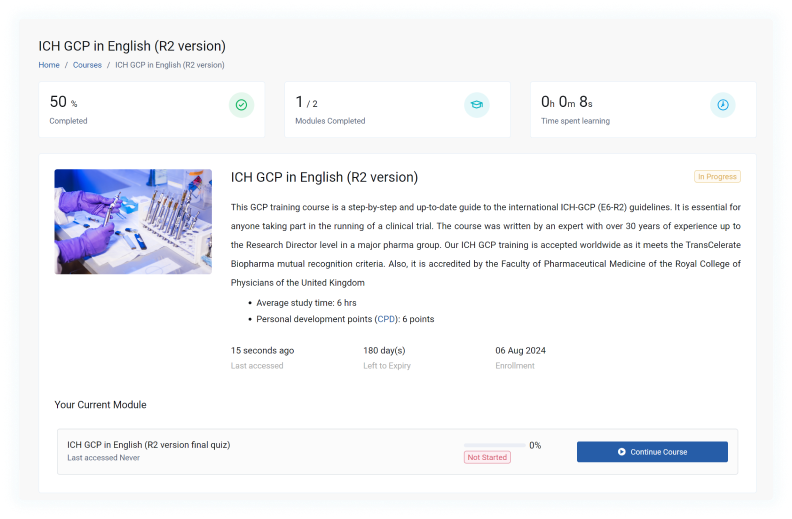Course Syllabus
- The History of GCP
- What is GCP?
- Why is ICH GCP Important?
- The Principles of ICH GCP
- Additional Learning Points
- Documentation and Version Control
- Quality Assurance (QA)
- Key Resources
- Introduction: Part 1
- Responsibilities of the CA
- Responsibilities of the IEC
- Subject Informed Consent Forms (ICF): Part 1
- Subject Informed Consent Forms (ICF): Part 2
- Composition, Functions, Operations, Procedures, and Records
- IEC Interactions with Sponsors and Investigators
- Introduction
- Investigator Responsibilities
- Investigator Qualifications and Agreements
- Adequate Resources
- Medical Care of Trial Subjects: Part 1
- Medical Care of Trial Subjects: Part 2
- Communication with IRB/IEC
- Compliance with the Protocol
- Investigational Medicinal Products: Part 1
- Investigational Medicinal Products: Part 2
- Randomisation Procedures and Un-blinding
- Informed Consent of Trial Participants
- Data Collections and Expression of Results
- The Consent Discussion
- Obtaining Consent: Subjects Who Cannot Read or Write
- Obtaining Consent: Minors and “Mentally Incompetent” Subjects
- Obtaining Consent: Incapacitated Subjects
- Obtaining Consent: Updating Consent
- Records and Reports: Introduction
- Records and Reports: Study Site Files
- Records and Reports: Updates & Amendments
- Records and Reports: Source Documents
- Records and Reports: Financial Information
- Records and Reports: The Case Record Form
- Records and Reports: Recording Subject Data
- Premature Termination or Suspension of a Trial
- Progress Reports and Final Reports by Investigator
- Archiving
- Introduction
- Quality Management: Part 1
- Quality Management: Part 2
- QA and QC (Quality Assurance and Quality Control): Introduction
- QA and QC (Quality Assurance and Quality Control): Standard Operating Procedures
- QA and QC (Quality Assurance and Quality Control): Agreements & Contracts
- Contract Research Organisations
- Medical Expertise
- Trial Design
- Trial Management: Part 1
- Trial Management: Part 2
- Data Processing: Part 1
- Data Processing: Part 2
- Record Keeping
- Investigator Selection: Introduction
- Investigator Selection: Permissions
- Investigator Selection: Responsibilities
- Investigator Selection: Compensation
- Financing
- Notification/ Submission to Regulatory Authorities
- Gaining CA Approval in the EU
- Confirmation of Review by IRB/IEC
- Information on IMP
- Manufacturing, Packaging, Labelling, and Coding Investigational Products: Part 1
- Manufacturing, Packaging, Labelling, and Coding Investigational Products: Part 2
- Supplying and Handling Investigational Products
- Record Access
- Audit and Inspection
- Noncompliance
- Premature Termination or Suspension of a Trial
- Clinical Trial/Study Reports
- Multicentre Trials
- Introduction
- Monitoring: Part 1
- Monitoring: Part 2 – Monitor Responsibilities
- Monitoring: Part 3 - The Follow-up Visit
- Complying with the Protocol, Amendments, SOP and Guidance
- Verifying Informed Consent
- The Case Record Form (CRF) and Source Documents
- Verifying Subject Data
- Errors
- Closing out the Monitoring Visit
- The Monitoring Report & Plan
- Quality Management - Centralised Monitoring
- Fraud and Misconduct
- Introduction
- Adverse Drug Reaction Reports: Part 1 – Adverse Events (AEs)
- Adverse Drug Reaction Reports: Part 2 – Serious Adverse Events
- Adverse Drug Reaction Reports: Part 3 – EIGI
- Adverse Drug Reaction Reports: Part 4 – Adverse Events of Special Interest
- Adverse Drug Reaction Reports: Part 5 – Periodic Safety Reports
- Adverse Drug Reaction Reports: Part 6
- Introduction
- Protocol Structure and Content
- Introduction
- Investigator Brochure Structure and Content
- Introduction
- Essential Documents
- Archiving
- Documents to be Present Pre-Study
- Documents to be Present During the Study
- Documents to be Present Post-Study
- Glossary & Abbreviations
- Useful Reference Documents List
Our GCP certified customers


Good Clinical Practice (GCP) training is a vital educational programme designed to equip clinical research professionals with the essential knowledge and skills needed to conduct high-quality clinical trials. This comprehensive course focuses on the ethical and scientific standards set forth by the International Council for Harmonisation (ICH).
The core objectives of GCP training include:
- Safeguarding the rights, safety, and welfare of human participants
- Upholding the accuracy and reliability of clinical trial data
- Fostering uniform, top-tier practices across all clinical research activities
Whitehall Training's Good Clinical Practice Course thoroughly explores these crucial aspects, offering learners a robust understanding of GCP principles and their practical implementation in clinical research settings.
For those aspiring to engage in clinical trial research, obtaining GCP certification is essential.
If you're keen to broaden your knowledge of the field, GCP certification offers significant advantages:
- It aligns your practice with global standards
- It bolsters the reliability and calibre of your research
- It safeguards the rights and well-being of study participants
- It opens up more career opportunities within clinical research
The Whitehall Training Good Clinical Practice Course not only grants you certification but also imparts practical know-how for effectively implementing GCP principles in your day-to-day work.
GCP certification is crucial for a diverse array of roles within clinical research:
- Lead and Assistant Investigators: Those who oversee and conduct trials at research facilities.
- On-site Trial Team: This includes study coordinators, research nurses, and other personnel involved in the day-to-day management of trials.
- Trial Organisers and Outsourced Research Firms: Individuals responsible for the planning, commencement, and documentation of trials.
- Regulatory Bodies: Officials tasked with ensuring trials adhere to established guidelines.
- Ethical Review Committees: Groups that assess and approve trial protocols.
- University and Research Centre Personnel: Staff ensuring institutional research meets international benchmarks.
- Government-Funded Research Teams: All staff participating in publicly funded clinical studies.
Whitehall Training's Good Clinical Practice Course is tailored to meet the needs of this wide-ranging audience, offering both role-specific knowledge and fundamental GCP concepts.
The course is also beneficial for individuals seeking to enhance their research capabilities and streamline their clinical trial processes.
Our Good Clinical Practice (GCP) course is designed to provide comprehensive coverage of the ICH-GCP (E6-R2) international guidelines. It fulfils the training requirements for those wishing to participate in international clinical trials. We've structured the course as a detailed, current guide to these crucial guidelines, making it an indispensable resource for anyone involved in clinical trial operations.
The course content has been crafted by a seasoned professional boasting over three decades of experience, including a tenure as Research Director at a prominent pharmaceutical company. This wealth of experience ensures that the material is both practical and relevant.
We're proud to offer this course in multiple languages, including English, German, Bulgarian, French, Italian, Japanese, Polish, Portuguese, Russian and Spanish. Additionally, we've developed regional variants tailored to the specific regulatory frameworks in Australia, the UK, the US, France, Germany and Latin America.
One of the key strengths of our GCP course is its user-friendly format. The clear, visually engaging presentation allows for effortless cross-referencing with the ICH-GCP E6 document. Moreover, the course provides valuable practical insights into the application of GCP principles, drawn from the extensive experience of its author.
We're delighted that our course has received accreditation from the Faculty of Pharmaceutical Medicine of the Royal College of Physicians of the United Kingdom. This accreditation underscores the quality and relevance of our training material. Upon completion, participants can earn 6 Continuing Professional Development (CPD) points, further enhancing the value of this learning experience.
Indeed, our GCP course has received accreditation from a highly respected body in the field. The Faculty of Pharmaceutical Medicine at the Royal College of Physicians has given its seal of approval to our programme. This organisation is renowned as the professional membership body for pharmaceutical physicians in the United Kingdom and has been establishing stringent research standards since 1989.
The accreditation from such a prestigious institution serves as a testament to the quality of our course. It demonstrates that our programme meets exacting industry and academic benchmarks, providing you with a qualification that is widely acknowledged in the field.
The price of GCP certification can fluctuate based on several key factors:
- Endorsement: Has the course received approval from recognised bodies?
- Qualification: Does the training fulfil ICH criteria, allowing researchers to engage in global clinical studies?
- Content standard: Is the material current and authored by a subject matter expert?
- Availability: What is the duration of learner access to the course materials?
At Whitehall Training, our GCP course is priced at £79, reflecting its:
- Endorsement: The course holds accreditation from the Royal College of Physicians, offering 6 CPD points.
- Qualification: Upon completion, participants are equipped to take part in clinical trials, in line with ICH E6(R2) guidelines.
- Content standard: Our GCP specialist, Lucy Parker, who boasts over ten years of experience managing research across major institutions like the NHS, has crafted the course content.
- Availability: To facilitate ongoing professional development, we grant unlimited access to our course resources.
Are you purchasing for a group? A 10% discount is automatically applied at checkout for orders of 5 licences. For larger group purchases, please reach out to our team to discuss bespoke pricing options.
Whilst there are some GCP courses available free of charge, it's important to consider their potential drawbacks:
- The content may be of lower quality, lacking accreditation and potentially outdated
- They typically don't offer official certification, which is necessary for conducting clinical research
These no-cost options might serve as a basic introduction to GCP principles for those simply seeking to familiarise themselves with the concept. However, they generally don't meet the standards required for professional development or regulatory compliance in clinical research.
Whitehall Training's Good Clinical Practice Course, on the other hand, provides up-to-date, accredited training with official certification, ensuring you're fully equipped to participate in clinical research activities.
Our GCP course offers a thorough exploration of the essential principles and practices necessary for conducting ethical and scientifically robust clinical trials. The programme is structured to accommodate learners at various levels, featuring both fundamental and more complex modules.
The curriculum encompasses a wide range of crucial subjects, including:
-The origins and core tenets of Good Clinical Practice
-Key stakeholder responsibilities: investigators, sponsors, and monitors
-Ethical implications and consent procedures
-Creating and following research protocols
-Managing safety reports and adverse incidents
-Ensuring data quality and integrity
-Navigating regulatory landscapes and authority interactions
-Maintaining crucial documentation and records
-Proper handling of investigational medicinal products
-Best practices in site management and monitoring
We deliver this training through a variety of engaging e-learning methods, designed to enhance the educational experience:
-In-depth instructional materials
-Authentic case studies and situational analyses
-Engaging knowledge assessments and quizzes
-Practical illustrations and industry-leading practices
-Chances for personal reflection and practical application
This comprehensive approach ensures that participants gain a solid foundation in GCP principles, preparing them for the complexities of modern clinical research.
Acquiring your Good Clinical Practice certificate is a simple, two-stage process:
- Work through our engaging, interactive course materials to complete the educational component.
- Take the online final assessment.
Feeling apprehensive about the GCP test? There's no need to worry. The assessment is merely a necessary step to confirm your readiness for research participation. Should you not succeed on your first attempt, you can easily revisit our comprehensive resource library to reinforce your understanding of any areas that need improvement, and then have another go at the exam.
Our Good Clinical Practice course is structured to ensure participants not only absorb the material but can effectively implement it in practical clinical research environments. The course employs various evaluation methods throughout:
-Continuous Evaluation: As learners progress through the modules, they encounter interactive tests and real-world scenarios. These serve to solidify crucial concepts and provide participants with a measure of their comprehension along the way.
-Comprehensive Final Assessment: The course concludes with an all-encompassing exam that thoroughly evaluates the learner's understanding of GCP principles and practices. This assessment covers all key areas from the course, including:
-Ethical aspects of clinical research
-Regulatory standards and adherence
-Responsibilities and roles within clinical trials
-Maintaining data integrity and quality
-Managing safety reports and adverse incidents
-Practical Implementation: Certain questions in the final assessment are crafted to evaluate the learner's capacity to apply GCP principles to lifelike clinical trial situations.
To ensure participants are thoroughly equipped to conduct their trials, achieving a passing score on the final assessment is necessary to receive GCP certification.
Learners may attempt the final assessment as many times as needed, ensuring they achieve the required standard and, consequently, become GCP certified.
Our Good Clinical Practice (GCP) course is tailored to suit a diverse range of professionals engaged in clinical research. Whilst prior knowledge of clinical research can be beneficial, it isn't essential for enrolling. We've carefully structured the content to accommodate varying levels of expertise and different roles within the clinical trial field.
This training is particularly suitable for:
- Clinical Research Coordinators
- Lead Investigators and their assistants
- Nurses specialising in research
- Managers overseeing clinical trials
- Professionals handling data and biostatistics
- Specialists in regulatory affairs
- Experts in quality assurance
- Members serving on ethics committees
- Chemists involved with clinical trials
- Personnel from sponsoring organisations and Contract Research Organisations (CROs)
Whether you're just starting your journey in clinical research or seeking to update your existing knowledge, our course offers a thorough exploration of GCP principles and their real-world applications. We've designed it to be accessible and informative, regardless of your current level of experience in the field.
Yes, Whitehall Training's Good Clinical Practice Course is fully available via the internet. This digital delivery method offers several benefits to our learners:
-Flexible study schedule: You can work through the course content at your own speed, adapting your learning to fit around your other commitments. This approach allows for a more thorough understanding of the material without the constraints of a fixed timetable.
-Study anywhere: As long as you have an internet-connected device, you can access the course at any time, day or night. Whether you're at your desk, relaxing at home, or on the move, the course materials are always at your fingertips.
The International Council for Harmonisation, commonly known as ICH, is a worldwide organisation that develops guidelines for pharmaceutical research and development, with Good Clinical Practice (GCP) being a crucial part of its remit. Here are some essential points about ICH:
- It serves as a collaborative platform, uniting regulatory bodies and pharmaceutical industry experts.
- ICH establishes globally recognised benchmarks for clinical trials.
- The organisation's GCP guidelines are centred on safeguarding trial participants and ensuring the integrity of research data.
- These guidelines undergo periodic revisions, with ICH GCP E6(R2) being the most recent iteration.
Adherence to these ICH guidelines is mandatory for conducting clinical trials that meet international standards. This is precisely why we've developed our comprehensive Good Clinical Practice course. Our training thoroughly covers all 13 fundamental ICH GCP principles, equipping you with the knowledge needed to conduct research that aligns with global requirements.
ICH GCP E6 (R2) is the abbreviation for the latest version of the Good Clinical Practice guidelines, published in 2016 by the International Council for Harmonisation of Technical Requirements for Pharmaceuticals for Human Use. This revision marks a pivotal shift in GCP standards, adapting to the ever-evolving field of clinical research.
It's essential for clinical research professionals to be well-versed in ICH GCP E6 (R2) for several reasons:
-These guidelines set the current worldwide benchmark for ethically and scientifically robust clinical trials.
-Regulatory bodies across the globe often mandate adherence to these standards.
-They play a crucial role in safeguarding study participants and ensuring the integrity of trial results.
-Many research institutions and pharmaceutical companies expect their teams and collaborators to be well-acquainted with and follow these updated guidelines.
The Whitehall Training Good Clinical Practice Course offers comprehensive coverage of ICH GCP E6 (R2). Our programme ensures that learners gain a thorough understanding of these revised guidelines and can implement them effectively in their day-to-day clinical research activities.
The International Council for Harmonisation (ICH) Good Clinical Practice (GCP) guidelines are founded on 13 essential principles that establish the ethical and scientific benchmarks for clinical research. These crucial elements include:
- Conducting research ethically
- Ensuring benefits surpass potential risks
- Safeguarding participants' rights and wellbeing
- Providing sufficient supporting information
- Developing scientifically robust protocols
- Obtaining approval from ethics committees
- Ensuring qualified medical oversight
- Employing competent investigators
- Acquiring informed consent
- Ensuring precise data documentation and reporting
- Maintaining confidentiality
- Adhering to good manufacturing practices for investigational products
- Implementing quality assurance systems
The Whitehall Training Good Clinical Practice Course offers comprehensive instruction on these principles, equipping you with the knowledge to effectively implement them in practical clinical research scenarios. By thoroughly exploring each principle, our course ensures you're well-prepared to navigate the complexities of modern clinical trials whilst upholding the highest standards of ethical and scientific conduct.

